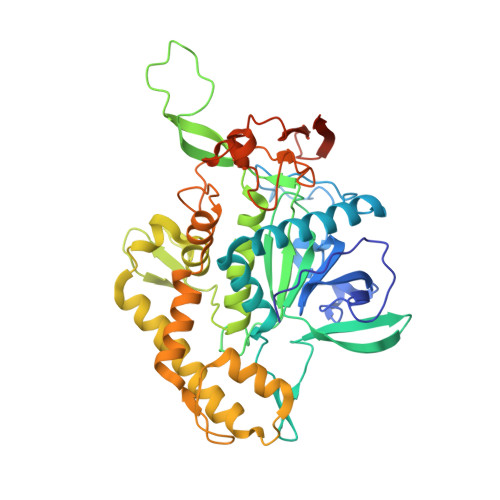Phage-assisted evolution of botulinum neurotoxin proteases with reprogrammed specificity.
Blum, T.R., Liu, H., Packer, M.S., Xiong, X., Lee, P.G., Zhang, S., Richter, M., Minasov, G., Satchell, K.J.F., Dong, M., Liu, D.R.(2021) Science 371: 803-810
- PubMed: 33602850
- DOI: https://doi.org/10.1126/science.abf5972
- Primary Citation of Related Structures:
7KZ7 - PubMed Abstract:
Although bespoke, sequence-specific proteases have the potential to advance biotechnology and medicine, generation of proteases with tailor-made cleavage specificities remains a major challenge. We developed a phage-assisted protease evolution system with simultaneous positive and negative selection and applied it to three botulinum neurotoxin (BoNT) light-chain proteases. We evolved BoNT/X protease into separate variants that preferentially cleave vesicle-associated membrane protein 4 (VAMP4) and Ykt6, evolved BoNT/F protease to selectively cleave the non-native substrate VAMP7, and evolved BoNT/E protease to cleave phosphatase and tensin homolog (PTEN) but not any natural BoNT protease substrate in neurons. The evolved proteases display large changes in specificity (218- to >11,000,000-fold) and can retain their ability to form holotoxins that self-deliver into primary neurons. These findings establish a versatile platform for reprogramming proteases to selectively cleave new targets of therapeutic interest.
- Merkin Institute of Transformative Technologies in Healthcare, Broad Institute of Harvard and MIT, Cambridge, MA 02142, USA.
Organizational Affiliation:



















